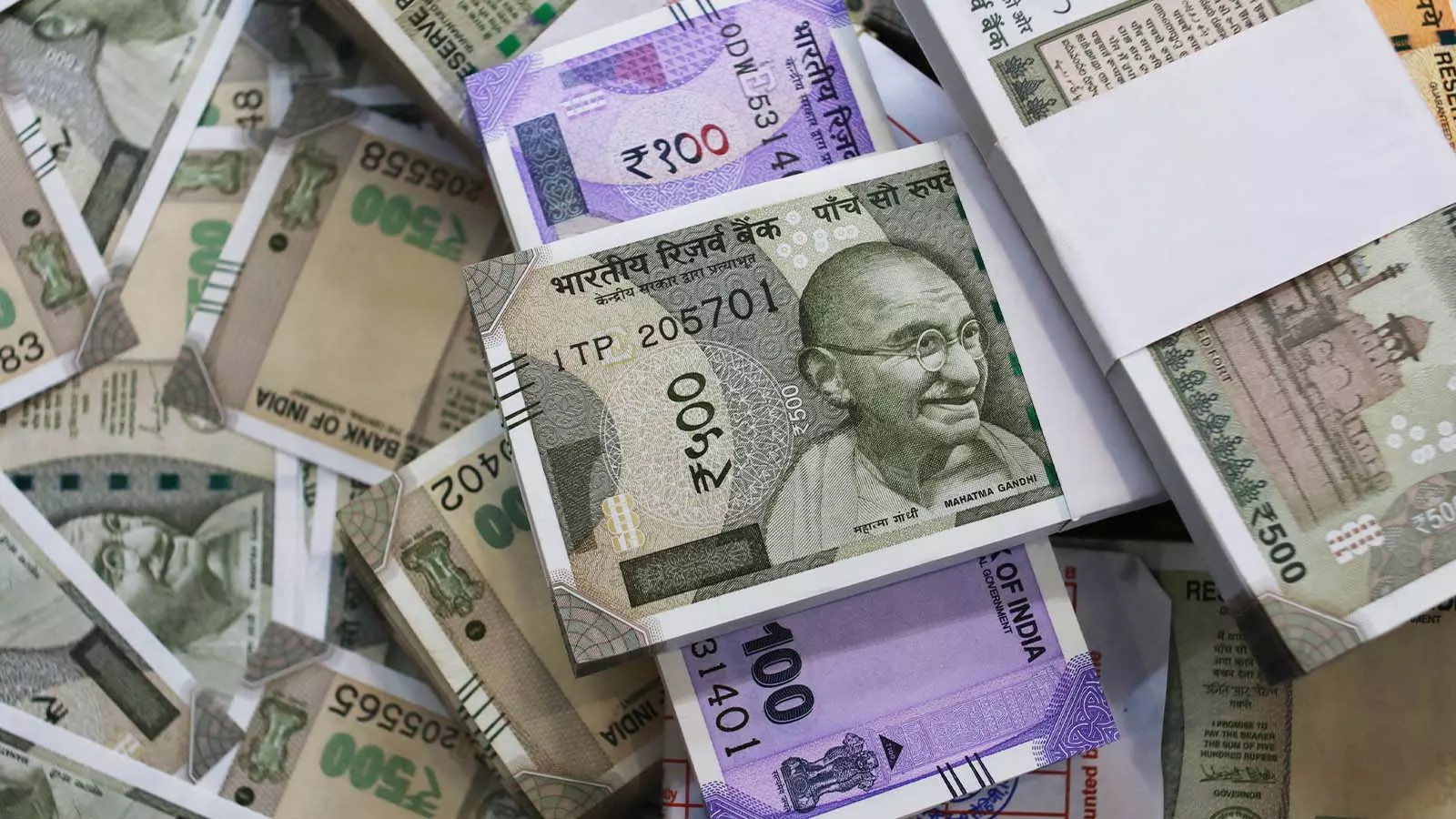
Thousands of salaried people, CAs ‘involved’ in Rs 500-crore fraud, claims I-T dept
The scam, involved 22,500 fraudulent tax returns, resulting in bogus claims worth Rs 450–500 crore and illegal refunds exceeding Rs 101 crore, say officials

The Income Tax Department has allegedly uncovered an extensive tax fraud in Tamil Nadu, implicating thousands of employees from Public Sector Undertakings (PSUs) and private firms, alongside a network of middlemen, income tax consultants, and chartered accountants (CAs).
The scam, running from 2021 to 2024, involved 22,500 fraudulent tax returns, resulting in bogus claims worth Rs 450–500 crore and illegal refunds exceeding Rs 101 crore. The government exchequer has reportedly suffered a direct loss of Rs 1.1 crore, with officials warning that the true financial toll could be far higher.
The investigation, bolstered by surprise raids across the state, allegedly exposed a meticulously orchestrated operation that exploited tax exemptions through fake bills, forged documents, and inflated deductions.
“This is one of the largest tax-evasion rackets we’ve seen in recent years,” a senior official from the Investigation Wing of the I-T Department, speaking on condition of anonymity, told The Federal. “The involvement of professionals like CAs makes it particularly egregious.”
Also read: PSU, private firm employees under scanner for widespread I-T fraud in Tamil Nadu
A web of deception
Employees, despite owning homes, claimed House Rent Allowance (HRA) exemptions — a benefit reserved for those paying rent. Others fabricated interest payments on non-existent housing loans, slashing their taxable income.
In one striking example, assessees produced fake donation receipts, claiming hefty contributions to political parties and charities to secure tax cuts. Middlemen allegedly took a single original receipt, churned out several coloured photocopies, and passed them off as legitimate documents to the I-T Department.
Perhaps the most shocking were the fake medical bills. Assessees submitted claims for expenses tied to physically challenged family members who, upon investigation, did not exist.
“We found cases where bills were created from scratch, with no trace of the supposed patient or treatment,” the official added. These tactics allowed people to siphon off refunds while evading their fair share of taxes.
The scam wasn’t limited to employees alone. Middlemen, raking in commissions of 10 to 20 per cent for every fraudulent return, acted as the linchpin, connecting assessees with tax practitioners. Leading chartered accountants and their teams, accused of knowingly generating fake bills, face allegations of flouting professional ethics and tax laws.
“These weren’t errors; this was deliberate fraud,” the official asserted.
Also read: Russian wanted in US for $96 billion cryptocurrency fraud arrested in Kerala
Scale of the scandal
The numbers paint a grim picture. Over four years, 22,500 ITRs were reportedly filed with bogus receipts and bills, spanning employees from PSUs such as Bharat Heavy Electricals Ltd (BHEL), Tamil Nadu Electricity Board (TNEB), and Tamil Nadu State Transport Corporation (TNSTC), as well as private companies across the state.
Raids in districts such as Tenkasi, Kanyakumari, and Chennai unearthed troves of evidence — forged documents and commission records and fake receipts — laying bare the racket’s reach.
The financial impact is staggering. The Rs 450–500 crore in fraudulent claims dwarfs the Rs 101 crore already refunded, hinting at undetected cases still lurking in the system. The direct loss of Rs 1.1 crore, while significant, is just the tip of the iceberg, officials say.
“For every refund caught, there’s likely more that slipped through,” noted a tax expert familiar with the case.
Cracking down
The I-T Department’s response has been swift and severe. Search operations, launched after tip-offs and data analysis, targeted homes, offices, and consultancy firms across Tamil Nadu. Evidence seized during these raids—piles of doctored bills, photocopied receipts, and payment logs—has strengthened the case against the perpetrators.
“We’re building watertight evidence to ensure accountability,” the official said.
Also read: ‘Exceeded authority’: TN govt challenges ED’s Tasmac probe in Madras HC
Legal action looms large. The department plans to prosecute assessees, middlemen, and implicated CAs under the Income Tax Act, with penalties ranging from hefty fines to imprisonment.
Recovery efforts are also underway to claw back the Rs 101 crore in wrongful refunds, though officials admit the process will be arduous.
Systemic failure?
The alleged scandal has sparked outrage and raised questions about oversight. How did 22,500 fake returns go unnoticed for four years? Critics point to lax verification processes and the complicity of tax professionals as key enablers.
“This isn’t just individual greed — it’s a failure of the system,” said, a Chennai-based tax advocate. “CAs are supposed to uphold the law, not break it.”
For the I-T Department, the case is a wake-up call. Plans are afoot to tighten scrutiny of high-value claims, bolster digital verification, and crack down on rogue consultants. “We’re sending a message: tax evasion won’t be tolerated,” the official vowed.

